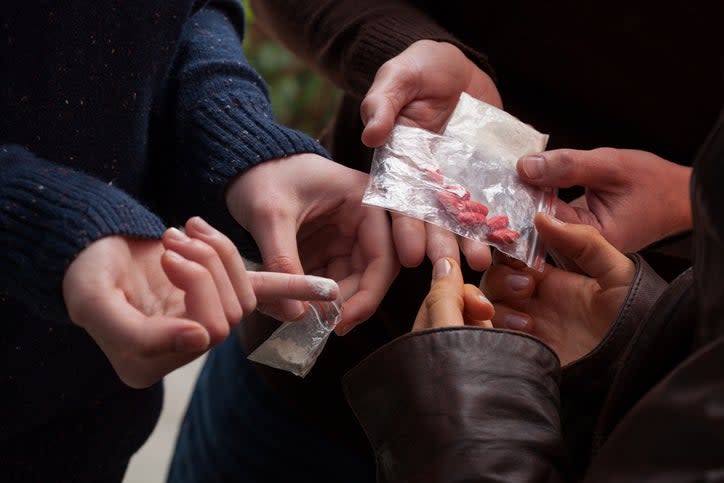The children arrested in county lines drugs operations are the real victims

Forty three regional police forces have been busy this week, not with enforcing Covid-19 restrictions but trying to disrupt the market in illegal drugs. Boasting about a nationally coordinated effort, Priti Patel says the results of the operation were “hugely impressive”. The operation was aimed at one part of the drug supply and distribution network, county lines. This is where drugs like crack cocaine and heroin are moved from urban areas out to more rural ones.
The numbers reported in this week-long operation sound impressive, 200 weapons, £526,000 in cash, £1.2 million worth of drugs and 1000 arrests. But as we’ve come to expect these look tiny compared to the overall value of this multi-billion pound market.
That aside, there is a case for intervention in this part of the drug market. County lines operations exploit young and vulnerable teenagers to act as drug couriers by drug gangs, meaning they take the greatest risks as they are the most visible part of the supply and distribution chain of illicit drugs. In any other setting this abuse of young children would attract the attention and support of the state via social services, who would intervene to ensure they were removed from this activity and adequately protected. But this is about illegal drugs where the state response has a history of illogical action based on ideology not caring pragmatism.
Yet again, the home secretary has taken the opportunity to boast about a minor disruption in one small part of the illicit drug market, emphasising how tough her policy is on those involved in dealing drugs. Completely missing the fact that these young foot soldiers are victims of the market rather than beneficiaries.
Worse, not only are these young people being exploited by their drug handlers, they are then arrested by the police, which compounds the trauma they’ve already experienced. Again, in any other scenario we would be reaching out to these children, for that’s what they are, and doing all we could to provide expert psychological care to ensure the damage to their mental health is alleviated.
Sadly, as fast as these young foot soldiers of the drug trade are removed by this type of police operation they are replaced by new blood within hours or days ensuring the market continues to be serviced. Creating yet another cohort of young children who are exposed to exploitation and brutalised by their drug managers further up the hierarchy.
Instead of measuring success by the number of children arrested it should be the price, purity and availability of drugs that is the proxy measure for any attempts to disrupt the drug market. By those measures, the market is thriving and growing rather than shrinking. Heroin and crack cocaine prices are stable, no less potent, and just as available as they have always been.
While Priti Patel seems to delude herself and voters that this type of operation is worth pursuing, and justifies using scarce public resources associated with carrying it out, the evidence suggests otherwise. By focussing on county lines and the teenagers manning them, it not only fails to achieve the government's goal of disrupting drug supply, it fails to protect the children who are exploited.
Political ideology is being prioritised over safeguarding these young people – meaning everyone loses. It is children who pay the heavy price of a stubborn unevidenced policy on drug law enforcement, that’s what needs announcing and our attention.
Read more
Police shut down almost 90 county lines spreading drugs and ‘mayhem’ across UK
Coronavirus: County lines drug dealers ‘stick out like a sore thumb’ during lockdown, say police


